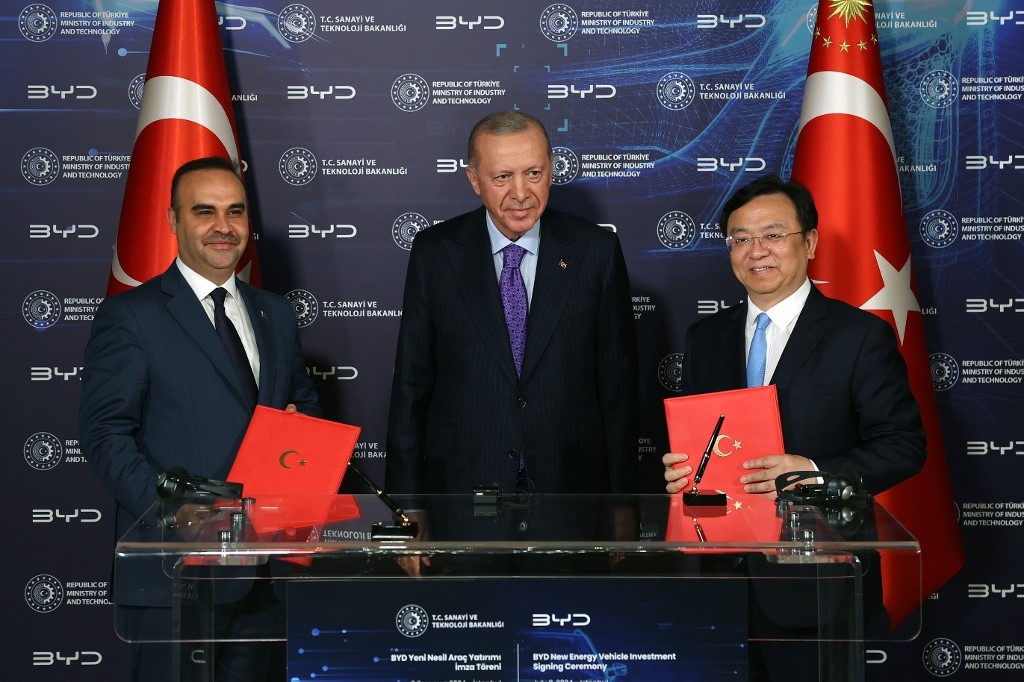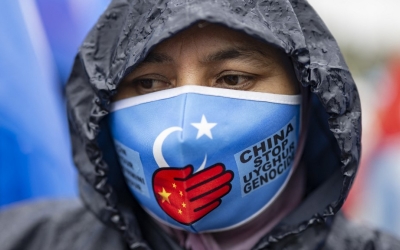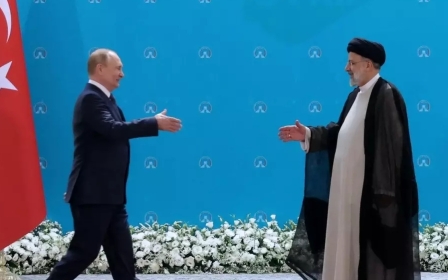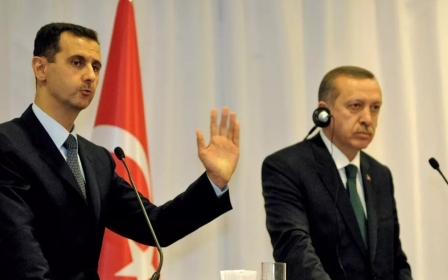How Turkey improved stagnated ties with China

A series of high-profile visits by Turkish officials to China last month have significantly improved the relationship between Ankara and Beijing, with the latter aiming to use Turkey as an export base.
China's leading electric car manufacturer, BYD, signed an agreement to invest $1bn in Turkey to establish a factory for electric vehicles (EVs) and plug-in hybrid vehicles. This facility, located in western Turkey, is expected to commence production before the end of 2026 and could employ approximately 5,000 people.
This substantial investment marks a notable shift in Turkish-Chinese relations, which had been deteriorating since 2020 following the resignation of finance minister Berat Albayrak, a strong advocate for enhanced cooperation with China.
Relations further soured in 2021, when a Chinese consortium abandoned plans to buy shares in Istanbul’s third bridge for nearly $700m.
This new investment could be a significant boon for Turkey's struggling economy, which is increasingly seeking foreign direct investment.
New MEE newsletter: Jerusalem Dispatch
Sign up to get the latest insights and analysis on Israel-Palestine, alongside Turkey Unpacked and other MEE newsletters
The primary obstacle to a stronger Turkish-Chinese relationship has historically been the plight of the Uyghurs in western China's Xinjiang, who share ethnic and cultural ties with Turkey.
Members of the Uyghur community, along with human rights groups and western officials, have repeatedly accused China of committing genocide and crimes against humanity against this Muslim minority. Reports indicate that millions of Uyghurs have been sent to concentration camps, and thousands of mosques have been destroyed or repurposed. China denies it is oppressing the community.
Despite these ongoing issues, the topic has been less prominent on national and international agendas over the past year. A Turkish source familiar with the matter told Middle East Eye: “The Chinese officials told us that the security issues had been resolved in Xinjiang Uyghur Autonomous Region. So in their mind, this chapter is about to be closed.”
Last month, Turkish Foreign Minister Hakan Fidan visited China for the first time since taking office, meeting with senior Chinese officials and emphasising Turkey's interest in improving relations.
Fidan also visited Urumqi and Kashgar in the Xinjiang region to personally observe the situation, fulfilling a long-standing Chinese demand. “We had a genuine and frank discussion on our own expectations,” a Turkish diplomatic source told MEE at the time.
Turkish officials have consistently reaffirmed their commitment to the "one China" principle, which asserts that Taiwan is an inalienable part of China, while also advocating for the fair treatment of Uyghurs as equal citizens with respected cultural rights and freedoms.
During these meetings, Turkish officials proposed a new beginning focused on economic cooperation as part of the so-called “global south”.
Later in June, a delegation from Turkey's ruling Justice and Development Party (AKP) visited China and met with officials from the Communist Party. The delegation, led by Vice Chairman Efkan Ala and Deputy Chairman Zafer Sirakaya, met Liu Jianchao, head of foreign affairs in the central committee of the Communist Party of China.
Both ruling parties signed an agreement committing to increasing bilateral visits, hosting joint conferences and engaging in cultural activities. Sources familiar with the visit told MEE that both parties established a direct line to resolve issues promptly.
The recent Chinese investment aligns with China's efforts to access the European Union market, and Turkey’s customs union with the EU presents a viable opportunity. However, Chinese officials expressed dissatisfaction with Ankara’s decision in June to impose a 40 percent additional tax on Chinese electric cars.
The Turkish side noted that the number of Chinese cars sold in the country surpassed 59,000 last year, representing six percent of total electric vehicles sales. “We told them that the number was about to double this year and there is no way we could tolerate it,” a Turkish source said. “Ninety-five percent of our bilateral trade consists of Chinese exports.”
Sustainable trade relationship
In response, Chinese officials indicated they were exploring ways to increase Turkish exports and maintain a sustainable trade relationship. Turkey submitted a list of 2,000 products for potential Chinese import and suggested establishing direct flights between Turkey and Urumqi, in China's northwestern interior, to deepen ties.
Sirakaya told Reuters that Chinese carmaker Guangzhou Automobile Group (GAC) was also in talks with Turkish electric vehicle manufacturer Togg regarding a possible joint production venture.
Following these meetings, President Recep Tayyip Erdogan met with his Chinese counterpart Xi Jinping on the sidelines of the Shanghai Cooperation Organisation summit in Kazakhstan last week. Sources suggested that Xi invited Erdogan to visit China and that he would reciprocate with a visit to Turkey.
Erdogan visited China in 2019, but a reciprocal visit by Xi did not occur as Ankara had not ratified an extradition treaty that would require Turkey to deport some Uyghur citizens. Sources indicated that the ratification of such an agreement remains off the agenda for now.
Middle East Eye delivers independent and unrivalled coverage and analysis of the Middle East, North Africa and beyond. To learn more about republishing this content and the associated fees, please fill out this form. More about MEE can be found here.





